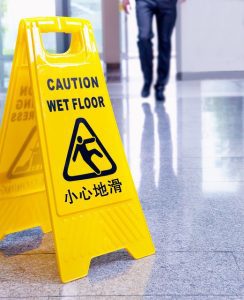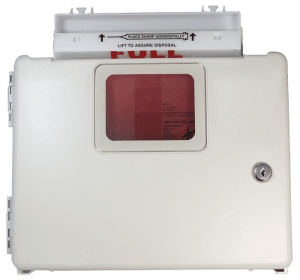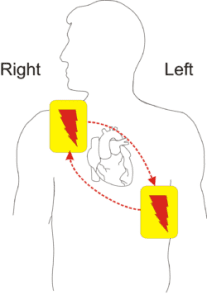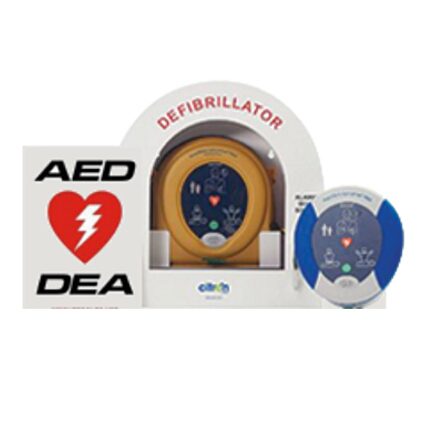Table of Contents
Last Updated on October 19, 2022
Embracing National Safety Month
June tends to mark the beginning of summer; however, it is also a great time to invest in the workplace, as June is National Safety Month! Having an injury and illness prevention plan is key in keeping workplaces safe and healthy. By creating plans based on industry and the hazards likely encountered by employees, businesses are taking a big step in preventing accidents and even tragedies that could have been avoided.
There are also economical benefits, as preventing these from happening also means avoiding the costs of claims, lost time and productivity, and lawsuits. All businesses in Canada and the U.S. are required to have safety training and plans, but different jurisdictions and states have different specifications, so it is important to learn your local laws before creating a plan.


Preparation is significant in decreasing the risks of injuries and illnesses and makes a real difference.
- The average person works for 22.4% of his/her life. As people spend so much time at their jobs, the chances of accidents happening during work hours increase
- The American Society of Safety Engineers has said that workplace injuries can be reduced by 50% with the implementation of a safety program
- Per OSHA, injury and illness costs can be reduced by 20-40% with a safety and health program
- The Community Against Preventable Injuries in Canada states that 95% of accidents are predictable and preventable
- Each year, preventable injuries cost about $16 billion annually per The Community Against Preventable Injuries
- In Canada, there were nearly 250,000 lost-time claims during 2014-2016
- In the U.S., there were 2,857,200 cases of nonfatal injuries and illnesses during 2016
Slips, Trips, and Falls at Work


Some of the most common workplace accidents in the U.S. and Canada include slip-and-falls, reaction injuries (slips and trips without falling), and contact injuries (with objects, equipment, or walking into something). The average slip-and-fall accident can cost upwards of $20,000 and result in several days away from work. About 65% of falls occur on same-level surfaces, so proper floor safety matting to keep floors dry, and housekeeping to clean spills and remove clutter will go far in preventing these mishaps.
Being Smart with Sharps


OSHA’s 1910.1030 standard regarding exposure to bloodborne pathogens requires employers whose staff may be exposed to potentially infectious body fluids to provide the necessary equipment to minimize this risk.
Some industries, like healthcare, need sharps disposal containers. However, all other businesses with employees who use sharps to treat medical conditions should also consider providing disposal. Many people use sharps (needles, lancets, syringes, or scalpels) to treat medical conditions like diabetes, migraines, cancer, and allergies. Improper disposal of used sharps in could lead to accidental exposure and needlestick accidents. Purchasing a sharps unit and using our sharps disposal service with Citron Hygiene ensures safe, compliant disposal and comes with regular maintenance, so containers never become too full.
Cardiac Arrest & Pandemic Planning at Work


Two other events that businesses should consider preparing for are cardiac arrests at work, and influenza pandemics. Each year, there are about 40,000 cases of cardiac arrest in Canada and in the U.S., around 10,000 instances of this happen to people while they are at work. An AED (automated external defibrillator) may not be used at all, but having it there shows employees and guests that their safety and health matters.
Illnesses are considered a safety issue for businesses as they can affect a large number of people quickly, and cause great disruption in productivity and become costly to manage. Pandemics are a large-scale, worst-case scenario version of an outbreak in the workplace. They are defined as “unpredictable, but recurring events that can cause severe social, economic, and political stress” by the World Health Organization. Absentee rates can be as high as 30% during peak pandemic periods, but having a plan and supplies in place could lessen this.
At Citron Hygiene, ‘Building Healthy Spaces’ means more than providing a fresh, clean environment for our clients?? staff and guests, it means preserving the health of everyone who visits the locations we serve. For this reason, we offer life safety services that can be adopted by businesses large and small.
Schedule a free consultation with our friendly team, and find out how we can help your business get life and pandemic plans in place.
Related posts:
- 4 Natural Resources that Businesses are Wasting
- 3 Ways to Make Your Business Safer
- Summertime is Maintenance Time
- Citron Certified Technicians: The gold-standard in facility hygiene services
- The List You Don’t Want Your Public Washroom To Be On – A Case Study of Horrible Washroom Experiences
- The Benefits of Citron Complete
- Helping Businesses Open Safely with Our Range of Solutions
- Citron Hygiene Receives The Recommended Workplace Award
